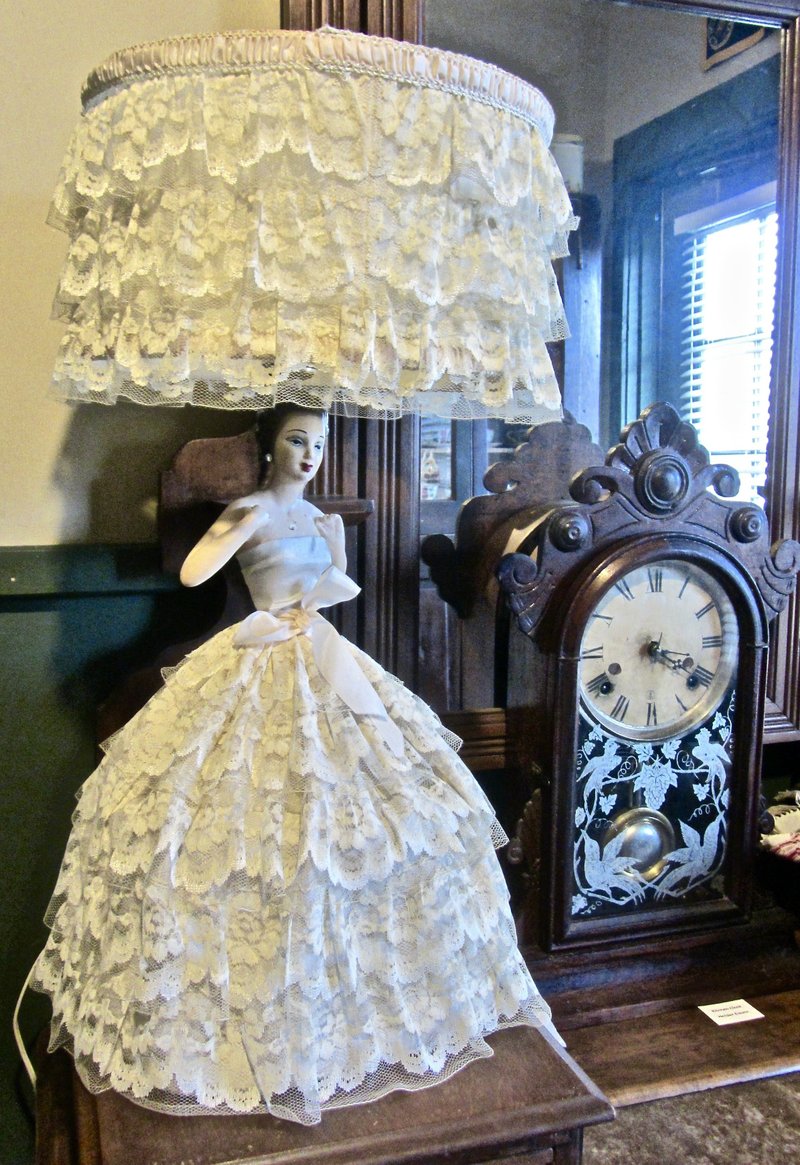ARKADELPHIA — One of the most whimsical objects in Clark County Historical Museum is also a bit of a mystery, even to the staff.
It's an ornate table lamp, with a human figure as its base. The statuette depicts a woman in a stylish gown, quite possibly a wedding dress, while the frilly shade resembles a frosted cake ready to be cut by the newlyweds.
Unlike most exhibits at this well-stocked museum in Arkadelphia's train station — the ex-Missouri Pacific depot still served by Amtrak — the lamp has no explanatory label. A volunteer staffing the site told a recent visitor that it had been donated some years back but without identifying details. She agreed that it might be a candidate for Antiques Roadshow.
The city of Arkadelphia, population 11,000, is an antique itself among the state's communities. Settled as Blakelytown by a blacksmith in 1808 on property overlooking the Ouachita River, it became Arkadelphia in 1838 and the seat of Clark County four years later. The name is thought to mean "The town built under an arc of brotherly love."
The city's businesses of the past are represented by museum exhibits like the one for the Arkansas Bottling Co., which produced such soft-drink brands as Sundrop, Nesbitt Orange, Mr. Cola, Arky Cola, Nugrape and Frostie Root Beer. The local maker of Dolly Dimple Ready-Mixed Flour touted it as "the best and consistently so!" A doll like Dolly could be made from one of the sacks bearing her image.
Among prehistoric artifacts on display is the partial skeleton of a wooden dugout canoe found in the Caddo River a few decades ago. The boat of pine or bald cypress, which broke into several pieces while being recovered, would have measured at least 16 feet long. According to radiocarbon dating, the canoe is 1,000 to 1,200 years old.
Much less ancient, but still a relic of bygone technology, is a dial telephone. When dialing replaced the voices of human operators in Clark County around World War II, the change evidently baffled at least some users. In response, the telephone company printed a booklet, on display with the black phone, to explain the then-novel process in some detail.
The six-step "How to dial" began with, "Be sure you know the number." Then came, "Lift the receiver to your ear and listen to the dial tone." Next was, "Place your finger in the opening where you see the first figure of the number you are calling. Pull the dial to the right (clockwise) until your finger strikes the finger stop."
Then, "Remove your finger and let the dial spin back by itself. Do not touch the dial while it is returning." Next, "Do the same thing for each of the other figures in the number you are dialing." Finally, "When you have finished dialing the number, you should hear the ringing signal, which is a bur-r-ring sound repeated at regular intervals. This will continue until the party you are calling answers or you hang up."
Museum visitors inclined to chortle at these painstaking instructions for a technology obsolete by the end of the 1960s should recall how challenging it may have been to gear up their first smartphones. That's especially true if they are old enough to remember having dialed their calls.
Available at the museum is a brochure for a walking or driving tour of Arkadelphia. Featured are 14 structures, among them the Victorian-style courthouse, originally erected in 1899 and rebuilt after the tornado that killed six and devastated the city's downtown on March 1, 1997.
Another free brochure provides a guide to Civil War sites in Clark County. One of the 12 locations, just north of Okolona, saw the so-called Battle of the Bees on April 3, 1864. The skirmish got that name because Confederate and Union troops faced swarms of the insects after high winds overturned beehives. The brochure notes that "both armies left the battlefield to their stinging tormentors."
Clark County Historical Museum, 750 S. Fifth St., Arkadelphia, is open 10 a.m.-3 p.m. Wednesday-Friday, 10 a.m.-noon Saturday. Admission is free; donations are welcome. Visit clarkcountyhistory.org or call (870) 230-1360.
Weekend on 01/31/2019
